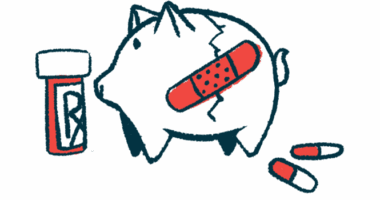Ionis and Akcea Partner to Market FAP Therapy Candidate Inotersen

OPOLJA/Shutterstock
Ionis Pharmaceuticals and its affiliate Akcea Therapeutics recently announced an exclusive worldwide license to commercialize inotersen and a follow-up therapy, AKCEA-TTR-LRx, formerly known as IONIS-TTR-LRx.
Inotersen is a therapy candidate being evaluated for the treatment of familial amyloid polyneuropathy (FAP). In May 2017, Ionis announced positive results from an ongoing Phase 3 trial demonstrating benefits in both disease progression and quality of life in FAP patients treated with the therapy.
Inotersen is now undergoing regulatory reviews in the United States and Europe, and if approved, could hit the market later this year. Under the new agreement, Akcea will acquire the rights to inotersen for about $1.7 billion plus profit-sharing payments.
Akcea is planning to develop AKCEA-TTR-LRx not only for hereditary forms of FAP (also called hereditary transthyretin amyloidosis, or hATTR), but also for non-hereditary forms of the rare disease, known as “wild-type” ATTR.
“This collaboration reflects our ever-increasing confidence in the value of Inotersen and exemplifies our strategy to use commercial affiliates to commercialize our drugs, keeping the core of Ionis focused on innovation and our antisense pipeline. This collaboration will allow the combined Ionis-Akcea team to rapidly deliver Inotersen to the patients who desperately need this treatment,” Stanley T. Crooke, MD, PhD, chief executive officer and chairman of Ionis, said in a press release.
“Adding two potentially life-changing therapies, inotersen and AKCEA-TTR-LRx, expands our pipeline of drugs to treat people with serious and under-served rare diseases,” said Paula Soteropoulos, Akcea’s chief executive officer.
According to a joint announcement by the companies, the U.S. Food and Drug Administration granted orphan drug status and fast track designation to inotersen for the treatment of patients with hATTR. The European Medicines Agency also granted orphan drug status to inotersen for the treatment of patients with non-hereditary ATTR.
Inotersen is designed to reduce the production of transthyretin, or TTR protein, to treat FAP. People with FAP have a mutation in the gene encoding the TTR protein. The mutation changes the shape of the TTR protein in a way that causes it to build up in organs and tissues. In FAP, the buildup of TTR in peripheral nerves leads to nerve damage and loss of motor function.
As an antisense treatment, inotersen is composed of small strands of nucleic acids that can bind to genetic material and “turn off” their expression. In FAP, inotersen interacts with ribonucleic acid to block the production of both the mutant and the normal forms of the TTR protein.
Also part of the partnership agreement is the addition of the inotersen commercial team to Akcea, enabling a rapid transition in the ongoing launch preparations. Some transitions at the board level will also take place, with Ionis’ chief business officer joining Akcea as president and taking a seat on the Akcea’s board of directors upon closing.
“In its pivotal study, inotersen treatment provided significant benefit in measures of disease progression and improved quality of life in the majority of people with FAP, while offering simple and quick administration as a once-weekly subcutaneous injection,” said Sarah Boyce, Akcea’s future president. “We are committed to bringing this important drug to those suffering from this devastating and fatal disease.”






